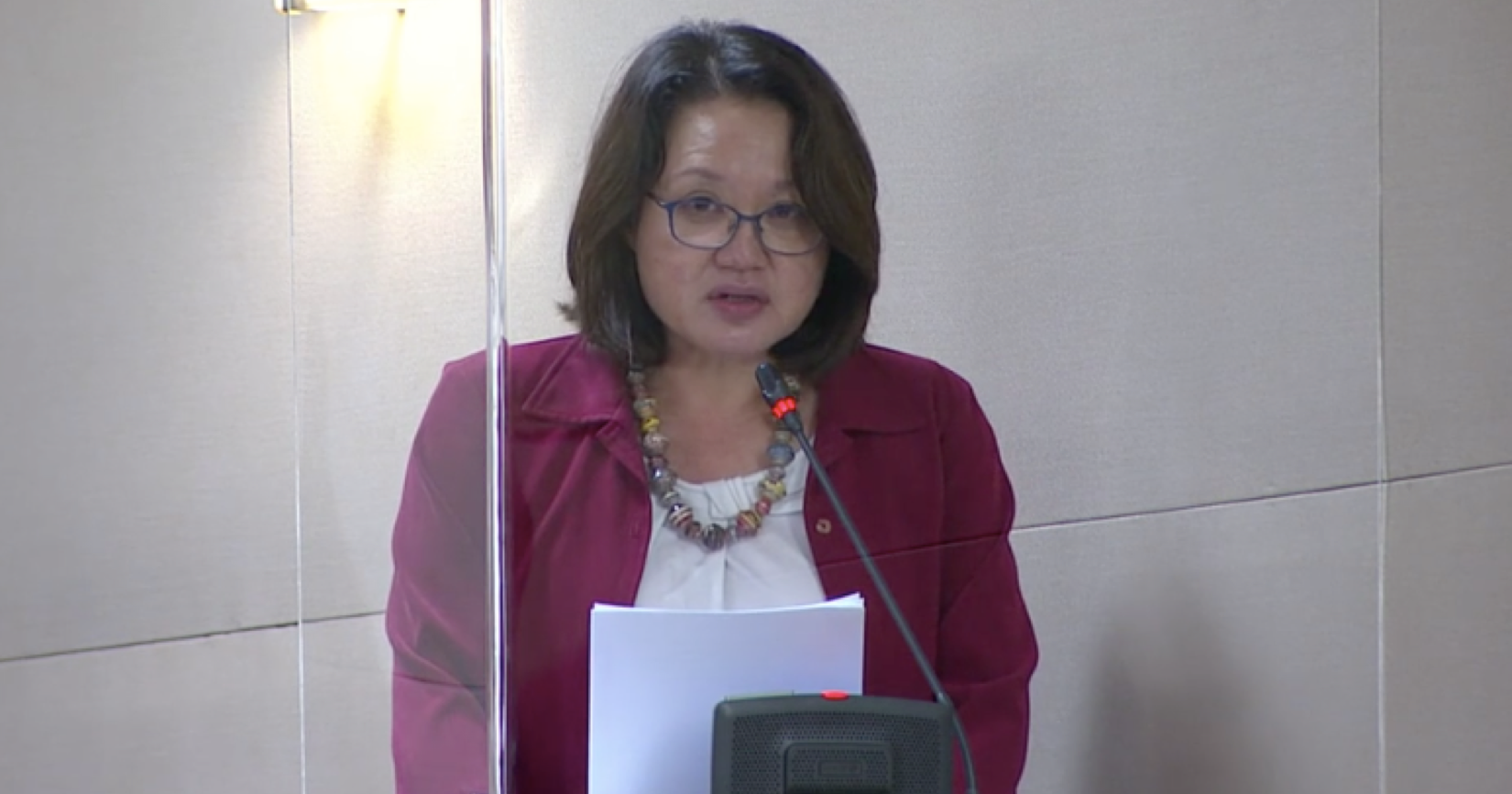Workers' Party Chair Sylvia Lim made the point that the government's response to addressing changes to Singapore's economy in a post-Covid-19 world would benefit from a more diverse range of voices, especially those who suffered the most from its impact.
In her speech during the Fortitude Budget debate in Parliament on June 4, she zeroed in on "blind spots and recovery", and how recommendations to the government could be improved with more diverse input.
Lim has previously spoken in the Unity Budget on Feb 28 and March 2, and the Resilience and Solidarity Budgets on April 6.
Women disproportionately affected by Covid-19
Lim noted that globally, evidence has emerged to show that women are disproportionately affected by Covid-19.
She referred to a United Nations report that said the pandemic has brought about a "shadow pandemic", making gender inequality worse.
In economic terms, woman have experienced significant employment losses, as they hold the majority of insecure, informal and low-paying jobs.
She also pointed out that 67 per cent of global health workforce are made up of women, and they are therefore more exposed to the virus. Meanwhile, she said that there is growing evidence that female academics are publishing less during lockdowns, as they are bearing the brunt of family care responsibilities.
Lim added that anecdotally, closer to home, women appear to be spending more time with their children doing Home-Based Learning.
Women should get equal representation in Covid-19 response planning and decision-making
Lim said, "While men appear more prone to succumb to the virus, it is women and girls who pay the social and economic toll."
Lim recommended that gender-aggregated data should be studied in all fields, from public health to economics, in order to build resilience for the next crisis.
She repeated the UN's call for governments to ensure that their responses to Covid-19 does not intensify the gender inequality crisis, and its recommendation that women be afforded equal representation in all Covid-19 response planning and decision-making.
Covid-19 Emerging Stronger Task Force needs to be more diverse, or risk "blind spots"
To achieve this, Lim said that it is necessary to include those who are familiar with segments of society that "bore a disproportionate brunt of the virus."
However, she pointed out that the government's Emerging Stronger Task Force has a severe gender imbalance.
The Task Force is co-chaired by Minister for Social and Family Development Desmond Lim, and PSA International Group CEO Tan Chong Meng.
It will identify systemic shifts emerging from Covid-19, assess their impact, and provide recommendations to the Future Economy Council on how the economy can be more resilient in the future.
Lim said:
"The membership of the task force has a gender imbalance, with only two women out of 17, a dismal 11 per cent.
This may be a missed opportunity, especially when it has been noted that management of the Covid-19 crisis has been particularly successful so far in Taiwan and New Zealand, with women at the helm.
In my view, the task force could benefit from having more women, especially women who understand gender issues."
Lim also mentioned that the task force does not have a Malay member, nor does it seem there is adequate representation for Small and Medium Enterprises (SMEs).
With an inadequate balance, Lim said that the final recommendations of this task force risks having "blind spots".
Lessons learned from Covid-19
Lim said that the mantra of "Stay home and save lives" may have actually harmed some who were forced to stay home.
Homes that are small and overcrowded are unpleasant environments to be in, and noted that since the Circuit Breaker began, the Singapore Police Force recorded an increase of 22 per cent in domestic violence cases.
Local non-governmental organisation AWARE also reported receiving more than double the number of calls about domestic violence in April 2020 as compared to April 2019.
Lim also pointed out that while "highly-paid persons stay safe at home, being classified non-essential, Singapore's foreign worker dormitories have become Ground Zero for the battle, and the fight is not over."
"We must squarely face what the crisis has taught us if we are truly to emerge stronger," said Lim.
Top image from CNA.
If you like what you read, follow us on Facebook, Instagram, Twitter and Telegram to get the latest updates.
